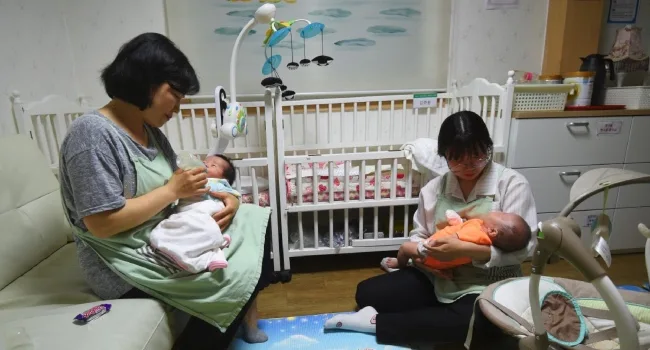South Korea will overhaul its adoption system on Saturday, ending the decades-long practice of outsourcing adoptions to private agencies, a system widely criticized for enabling abuse and human rights violations.
Between 1955 and 1999, more than 140,000 South Korean children were sent overseas, many through a profit-driven international adoption industry. A recent official inquiry by a state-established truth commission found the process riddled with serious irregularities, including fraudulent orphan registrations, identity tampering, and inadequate vetting of adoptive families.
The commission concluded that the rights of countless children were violated and urged the government to issue an official apology, citing systemic failures — particularly the lack of regulation over adoption fees.
In response, the government is introducing a “newly restructured public adoption system” in which the state and local authorities will take full responsibility for adoptions, the Ministry of Health and Welfare said Friday.
“This is a significant step toward ensuring the safety and protecting the rights of adopted children,” the ministry said.
A ‘shameful part’ of history
International adoption in South Korea began after the Korean War, initially as a way to remove mixed-race children born to Korean mothers and American soldiers from a society that prized ethnic purity. It later grew into a lucrative industry, especially in the 1970s and 1980s, amid rapid economic development.
However, the truth commission found that children were often taken from birth parents without proper legal consent, leading to numerous high-profile cases of children sent abroad without their families’ knowledge.
Commission chair Park Sun-young described the adoption system as a “shameful part” of South Korea’s history.
Under the new policy, key decisions such as screening adoptive parents and child placement will now be made by a government-appointed committee, prioritizing the “best interests of the child.” These responsibilities were previously handled by private agencies with little state oversight.
“This reform ensures the government assumes full responsibility for protecting adopted children,” said Kim Sang-hee, head of child policy at the Health Ministry.
Despite the reform, activists and adoptees say the government must go further.
“It’s overdue to shut down private adoption agencies,” said Lisa Wool-Rim Sjoblom, a Korean adoptee raised in Sweden. “But simply handing control to the state isn’t enough.”
She called on the government to implement the truth commission’s findings, issue a formal apology, and support tens of thousands of adoptees sent abroad.
“The state must acknowledge the human rights violations it enabled, encouraged, and systematically carried out — and begin reparations as soon as possible,” she said.


